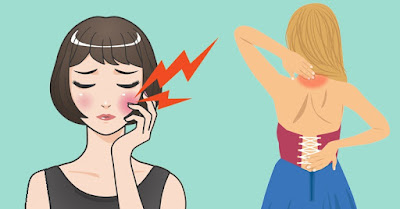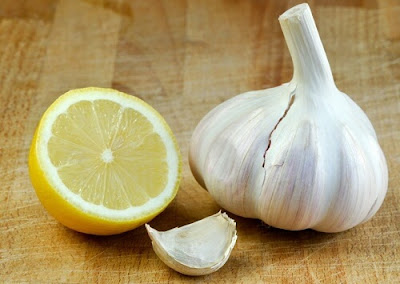The risk of hypertension can be affected by a wide range of risk factors, from smoking, stress, and overeating to excessive drinking and lack of physical activity. All of these factors impact people in a different manner, meaning that there isn’t any exact way to set the limits on what is too much.
This is the reason why maintaining a well-balanced and healthy lifestyle is quite challenging, requiring elimination of the bad stuff and introducing more of right things in your daily routine. If you strive towards regulating your blood pressure levels, making certain lifestyle modifications is a must.
High blood pressure levels make it much more difficult for the blood to get pumped through the body, which in turn increases the risk of disease by putting stress on the heart. Complications of hypertension are quite severe, including eye damage, stroke, hardening of the arteries, heart disease, and kidney disease.
The good news is that there are a few herbs which can go a long way in regulating and lowering blood pressure levels in an all-natural way.
1. Oregano
Oregano is highly accessible and quite popular these days. Its carvacrol content is known to lower blood pressure naturally, relaxing the heart rate and making it much easier to pump blood through the body.
Interestingly, oregano works as healthier alterative to salt, which makes it a solid flavoring agent. This is very important given that excessive salt intake is known to increase blood pressure.
Unfortunately, the standard American diet is loaded with sodium and deficient in nutrients. Oregano helps combat this problem by filling you up with its blood pressure regulating properties and robust nutritional profile.
2. Valerian
Valerian has tranquilizing properties which help lower stress levels and help you relax. Consequently, its properties lower blood pressure levels, too. Note that stress is one of the critical risk factors for hypertension, so finding a way to deal with it helps keep the heart healthy.
3. Lavender
Adding a few drops of lavender oil to a bath is one of the best and easiest ways to relax. Given that it expands the blood vessels, it also promotes easier blood flow and mental stress reduction. Its aromatic properties make it one of the best calming options on this list. It has been scientifically shown that it can help lower blood pressure levels by staggering 50 percent.
4. Passionflower
Passionflower is typically used to promote sleep and is highly beneficial for those with high levels of anxiety or stress. Multiple clinical trials involving patients with generalized anxiety disorders have shown that it can be successfully used to alleviate drug withdrawal symptoms.
Note: Although these herbs are a good and healthy way to maintain healthy systolic and diastolic blood pressure levels, they are not the only way! Staying hydrated, managing stress, following a healthy diet, and eliminating unhealthy habits are all good ways to improve the overall health.
source: http://besthealthyguide.com
This is the reason why maintaining a well-balanced and healthy lifestyle is quite challenging, requiring elimination of the bad stuff and introducing more of right things in your daily routine. If you strive towards regulating your blood pressure levels, making certain lifestyle modifications is a must.
High blood pressure levels make it much more difficult for the blood to get pumped through the body, which in turn increases the risk of disease by putting stress on the heart. Complications of hypertension are quite severe, including eye damage, stroke, hardening of the arteries, heart disease, and kidney disease.
4 Herbal Remedies that Help Lower Blood Pressure
The good news is that there are a few herbs which can go a long way in regulating and lowering blood pressure levels in an all-natural way.
1. Oregano
Oregano is highly accessible and quite popular these days. Its carvacrol content is known to lower blood pressure naturally, relaxing the heart rate and making it much easier to pump blood through the body.
Interestingly, oregano works as healthier alterative to salt, which makes it a solid flavoring agent. This is very important given that excessive salt intake is known to increase blood pressure.
Unfortunately, the standard American diet is loaded with sodium and deficient in nutrients. Oregano helps combat this problem by filling you up with its blood pressure regulating properties and robust nutritional profile.
2. Valerian
Valerian has tranquilizing properties which help lower stress levels and help you relax. Consequently, its properties lower blood pressure levels, too. Note that stress is one of the critical risk factors for hypertension, so finding a way to deal with it helps keep the heart healthy.
3. Lavender
Adding a few drops of lavender oil to a bath is one of the best and easiest ways to relax. Given that it expands the blood vessels, it also promotes easier blood flow and mental stress reduction. Its aromatic properties make it one of the best calming options on this list. It has been scientifically shown that it can help lower blood pressure levels by staggering 50 percent.
4. Passionflower
Passionflower is typically used to promote sleep and is highly beneficial for those with high levels of anxiety or stress. Multiple clinical trials involving patients with generalized anxiety disorders have shown that it can be successfully used to alleviate drug withdrawal symptoms.
Note: Although these herbs are a good and healthy way to maintain healthy systolic and diastolic blood pressure levels, they are not the only way! Staying hydrated, managing stress, following a healthy diet, and eliminating unhealthy habits are all good ways to improve the overall health.
source: http://besthealthyguide.com

























